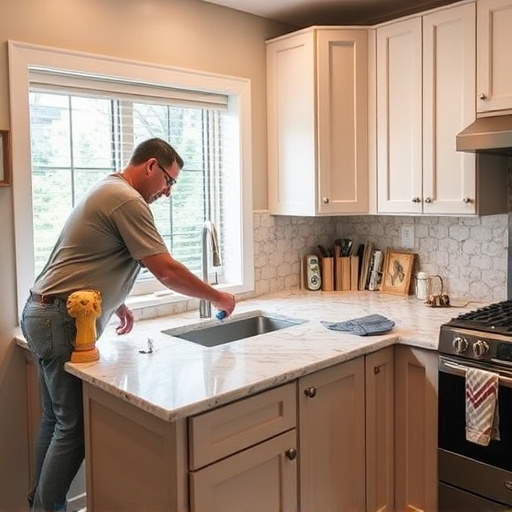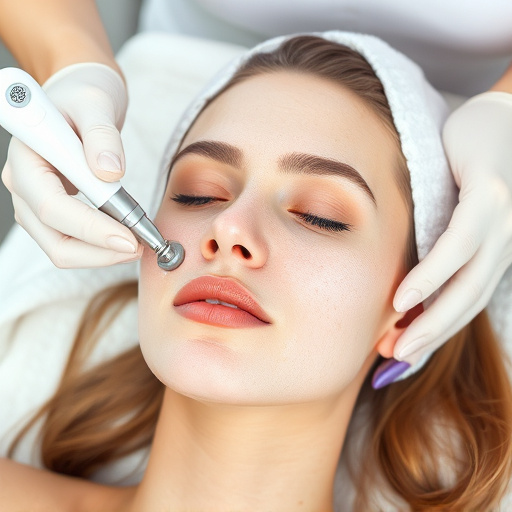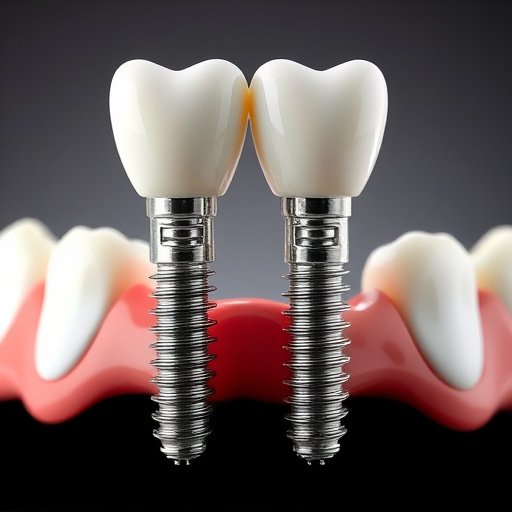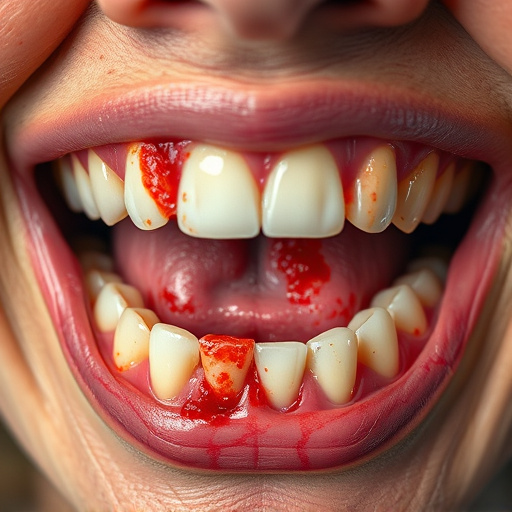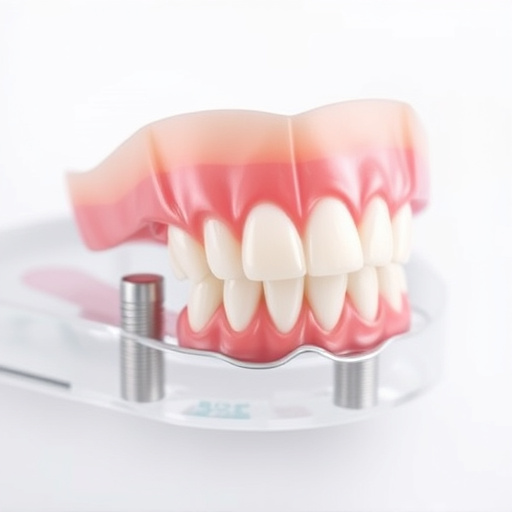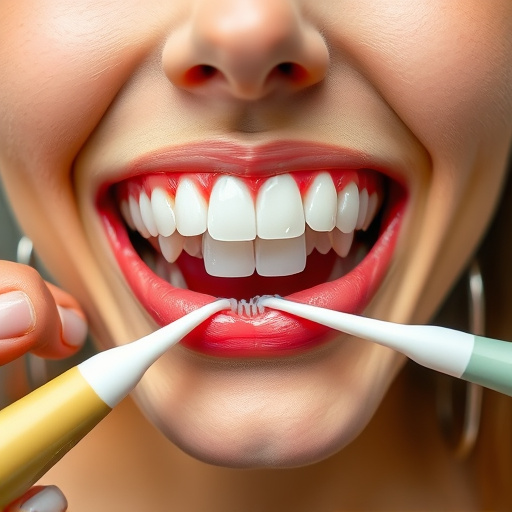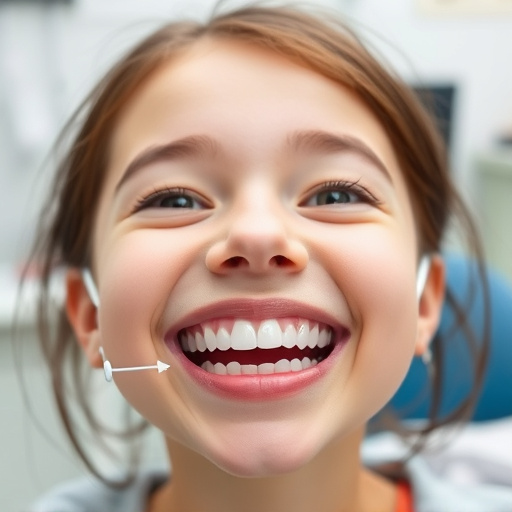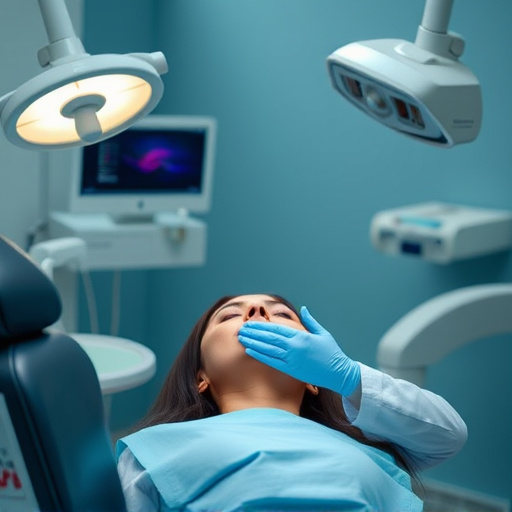Dental care for seniors presents unique challenges due to age-related factors like reduced saliva, muscle atrophy, and systemic conditions. Regular check-ups are key to early detection of issues like tooth decay and gum disease. Modern tooth replacement options include durable implants and crowns, offering comfort and improved chewing ability. Temporary solutions like over-dentures provide immediate relief while planning for more permanent fixes. Incorporating daily oral hygiene practices alongside professional care ensures optimal dental health for seniors.
As people age, their dental care needs evolve, making it crucial to understand the unique challenges seniors face. This article explores the essential aspect of dental care specifically tailored to the elderly, focusing on tooth replacement options. We delve into traditional and modern solutions, ensuring a comprehensive guide for both seniors and caregivers. Learn about maintaining optimal oral health with practical tips, enhancing quality of life and overall well-being for our aging population. Discover how to navigate the landscape of dental care for seniors effectively.
- Understanding Dental Care Needs of Seniors
- Tooth Replacement Options: From Traditional to Modern Solutions
- Maintaining Oral Health: Tips and Best Practices for Seniors
Understanding Dental Care Needs of Seniors
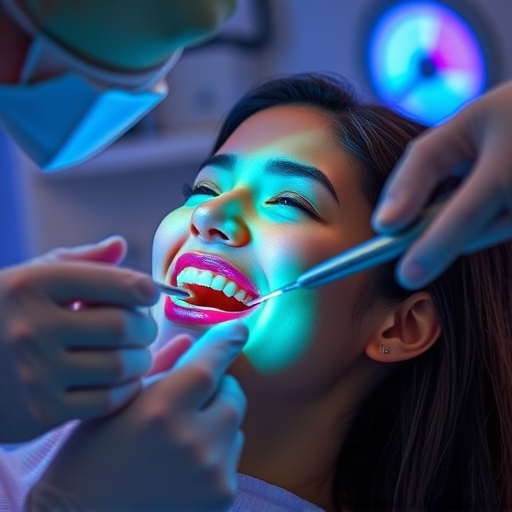
The dental care needs of seniors differ significantly from those of younger individuals, reflecting changes in oral health and overall well-being. As people age, they often face unique challenges such as increased risk of tooth decay, gum disease, and tooth loss due to various factors like reduced saliva production, muscle atrophy, and systemic health conditions. Understanding these specific needs is crucial for providing effective dental care tailored to seniors’ health and lifestyle changes.
Regular check-ups become even more vital for older adults, as they help in early detection of oral health issues. Dental fillings, both cosmetic and functional, play a significant role in restoring teeth affected by decay or wear. Moreover, with advancements in dentistry, seniors now have access to advanced procedures that can replace missing teeth, enhancing their smile, chewing ability, and overall quality of life, setting them apart from the more age-related dental concerns typically associated with children’s dentistry.
Tooth Replacement Options: From Traditional to Modern Solutions
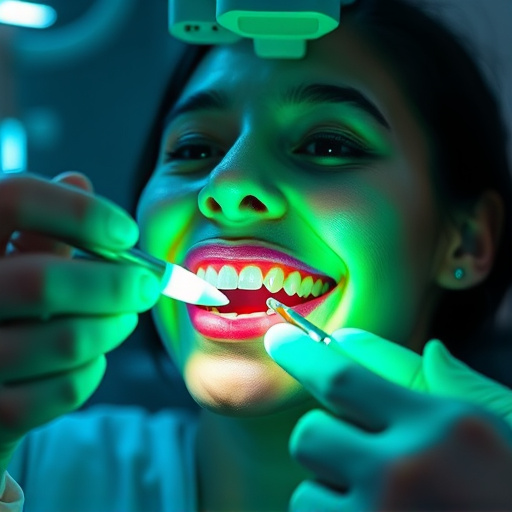
Tooth Replacement Options: From Traditional to Modern Solutions
When it comes to dental care for seniors, tooth replacement options have evolved significantly over time. Traditionally, dentures and dental bridges were the go-to solutions for replacing missing teeth. These options have their merits, offering both functional and aesthetic improvements. However, modern dentistry offers a range of advanced alternatives that can enhance comfort, durability, and overall oral health.
Among these modern solutions are dental implants, which serve as a more permanent and stable option than dentures or bridges. Implants are placed surgically into the jawbone to support artificial teeth, providing a natural look, feel, and function. Another innovative approach is the use of dental crowns, which can be used to restore damaged or decayed teeth instead of removing them entirely. In case of immediate or emergency dental care needs, such as urgent tooth extractions, temporary solutions like over-dentures or partial dentures can offer quick relief while planning for long-term, more permanent replacements.
Maintaining Oral Health: Tips and Best Practices for Seniors
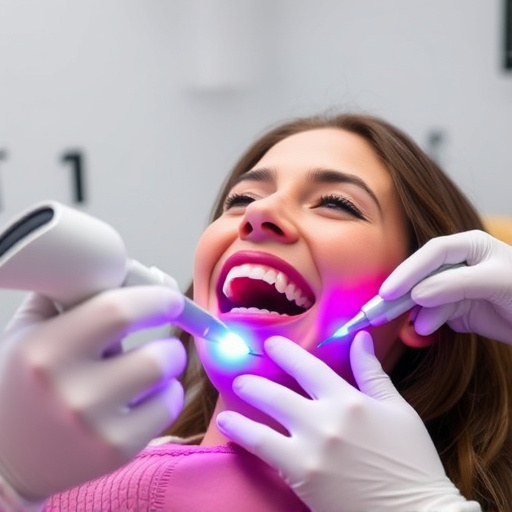
Maintaining good oral health as a senior is essential for overall well-being and quality of life. With age, dental issues like tooth decay, gum disease, and tooth loss become more prevalent. To preserve their smile and avoid complications, seniors should prioritize regular dental check-ups, typically recommended every six months. During these visits, dentists can detect potential problems early on and provide appropriate treatment options tailored to the patient’s needs.
In addition to professional care, seniors can practice several at-home tips for optimal oral hygiene. Brushing twice a day with fluoride toothpaste is fundamental, ensuring proper technique to reach all areas of the mouth. Flossing daily helps remove plaque buildup between teeth and under the gum line, preventing gingivitis and periodontitis. Using mouthwash can further freshen breath and fight bacteria, while regular dental cleanings by a professional hygienist are vital for maintaining healthy gums and removing tough-to-reach debris. Incorporating these best practices alongside any recommended restorative dentistry procedures, such as clear aligners or implants, contributes to the ongoing care of senior dental health.
As we’ve explored, dental care for seniors is a crucial aspect of maintaining overall health and quality of life. Understanding unique oral healthcare needs and accessible tooth replacement options enables seniors to navigate their journey towards optimal oral health. By adopting best practices and staying informed about modern solutions, individuals can confidently embrace a brighter, healthier smile in their senior years.





